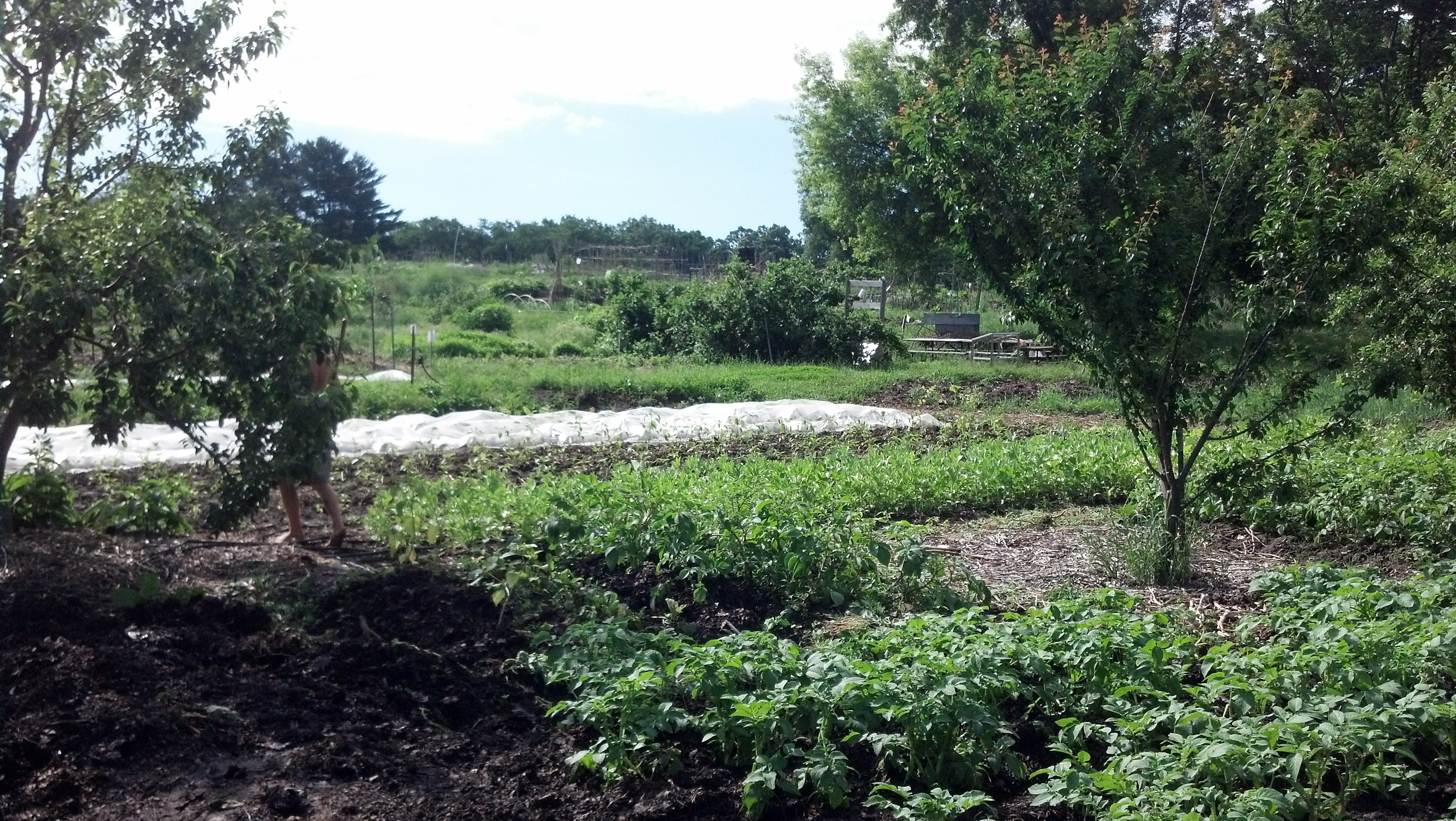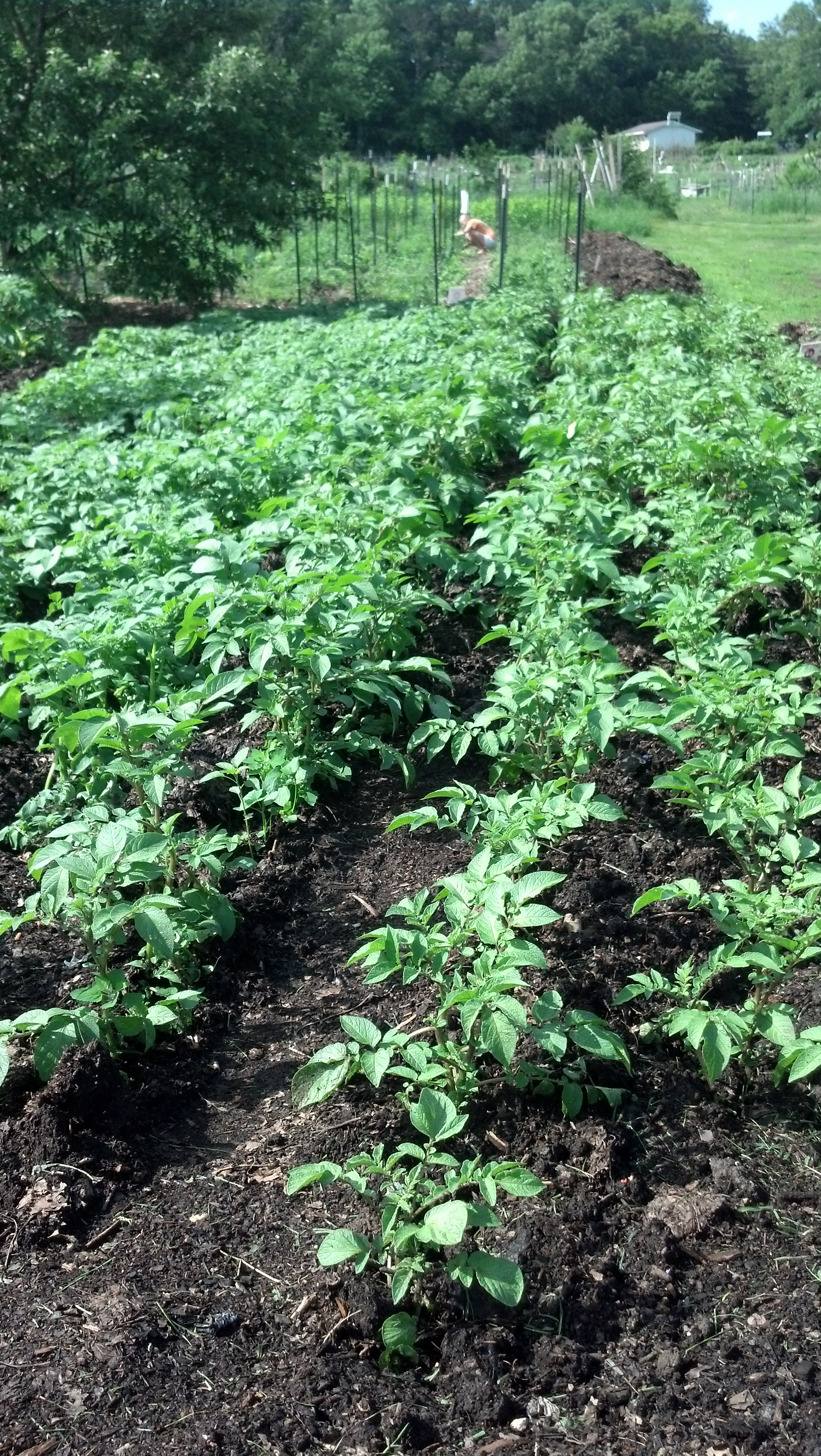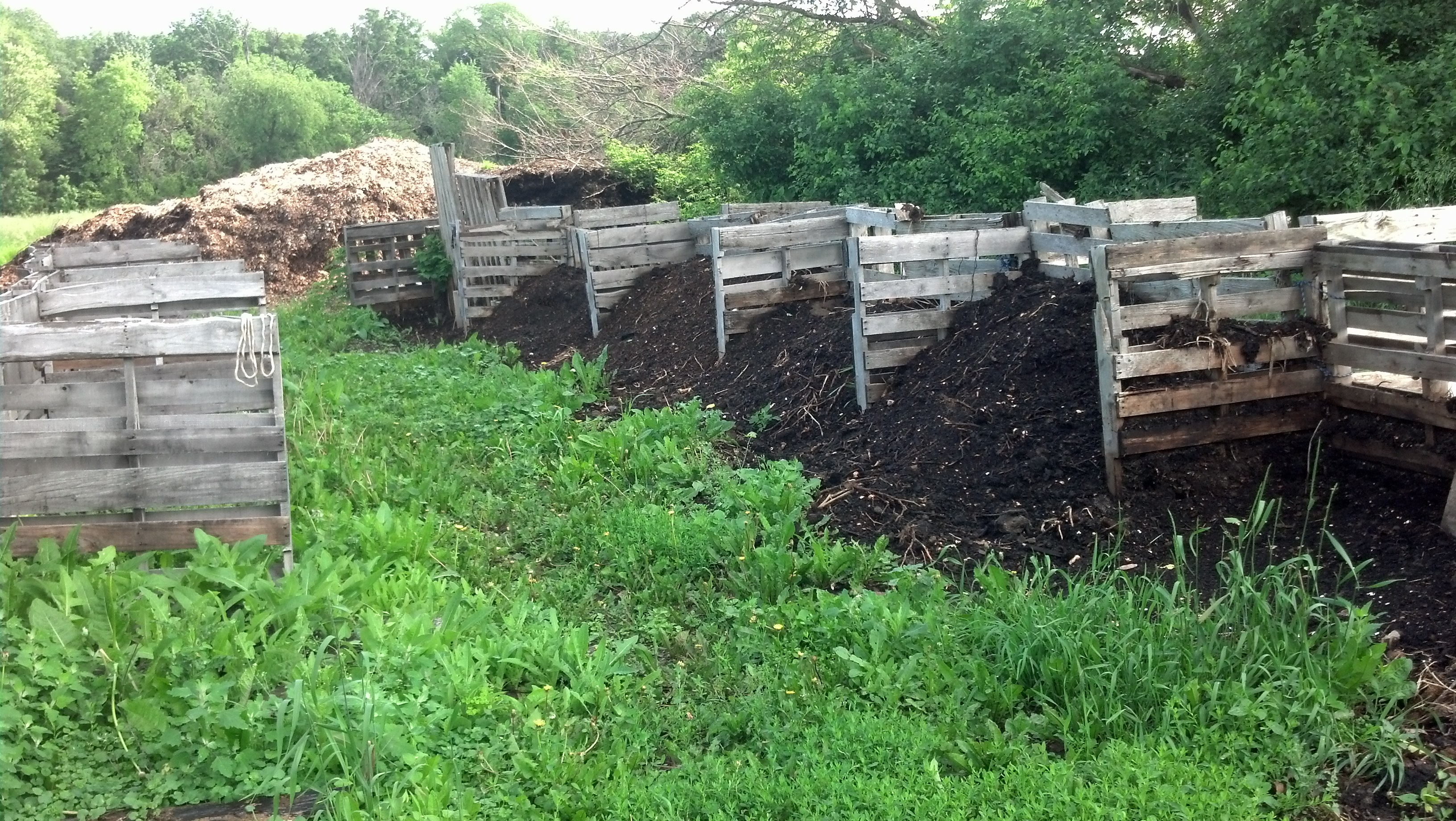A visit to the F.H. King student farm

One of our research sites is at the community gardens in Eagle Heights, at the west edge of the UW-Madison campus. We were planning to finish planting today, but the giant storm that passed through last night made walking in the field next to impossible – though two happy sandhill cranes would disagree!
This small field is where we do our first round of field selection on lines from our potato breeding program. It is divided into quarters, and we are establishing a four-year rotation – this is our second year in the field. The site is not organic, but is managed according to organic principles. I am hoping that we can improve our rotation and try some new methods over the next few years. Raised beds to improve drainage would have been nice to have this year!

Since we couldn’t plant, I decided to visit the F.H. King student farm which is right next to our field. F.H. King Students for Sustainable Agriculture grow vegetables, herbs, berries, grapes and other fruit on about 2 acres of land at Eagle Heights. They are also setting up a bee hive this year!

The farm produces around 2900 pounds of produce each growing season, thanks to the work of the two garden directors and many student volunteers. About three-quarters of the produce is distributed to the UW-Madison community free of cost through F.H. King’s Harvest Handouts program. The rest is donated to Community Action Coalition of South Central Wisconsin, a local non-profit that procures fresh produce for local food pantries.
The F.H. King group also runs Full Cycle Freight, a community composting program. Twenty-five FCF interns pick up food scraps from local homes and businesses, using bikes attached to 8-foot, 400-pound capacity trailers. The scraps are composted at the Eagle Heights farm and used to improve the soil. Produce grown in this rich compost-amended soil is delivered – by the FCF bikes! – centrally on campus for Harvest Handouts… which eventually lead to more food scraps, completing the cycle.

I, of course, was most interested in the potatoes (not to mention kind of envious). A beautiful stand, planted in the third week of April, and thickly mulched with well-rotted leaf mulch. Girard, one of the garden directors, was applying more mulch to a neighboring bed of potatoes. Axel, the other garden director, dug out a handful of rich finished compost from an older part of the leaf pile for me to see. The leaves are brought in from neighboring Shorewood Hills – another great example of using a resource that would otherwise become a waste management problem.

So after my visit I was mostly consoled for missing out on planting today. Hopefully the warm weather and sunshine will allow us to get into our field tomorrow – and we’ll finally be done with planting potatoes for this year!
Ruth
This article was posted in Blog Posts.